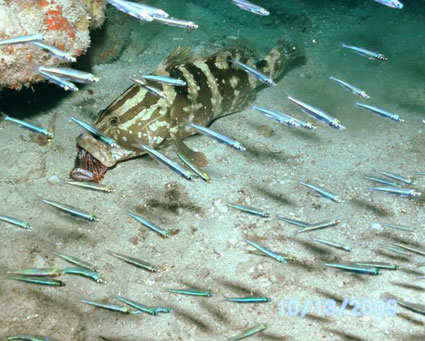DazedAndConfuzed
Contributor
PADI would offer a course on "Swimming with fins of different colors" if they thought there was a market. In this case, I suspect the new name is more in line with their actual goals, since I reckon it's focused on invasive lionfish in the caribbean rather than native ones in Indonesia.
One was created in Bonaire and the other in Grand Cayman.
If 2 observations per day since is 1992 is pseudoscience, then all the casual observations by people must be superstition.
If you want to eat lionfish, eat it as sushi, as the groupers are doing:

As study shows, correlation between availability of groupers and its inverse relation to lionfish population:
PLoS ONE: Grouper as a Natural Biocontrol of Invasive Lionfish
Since it is only correlation, I presume it is sorcery.




